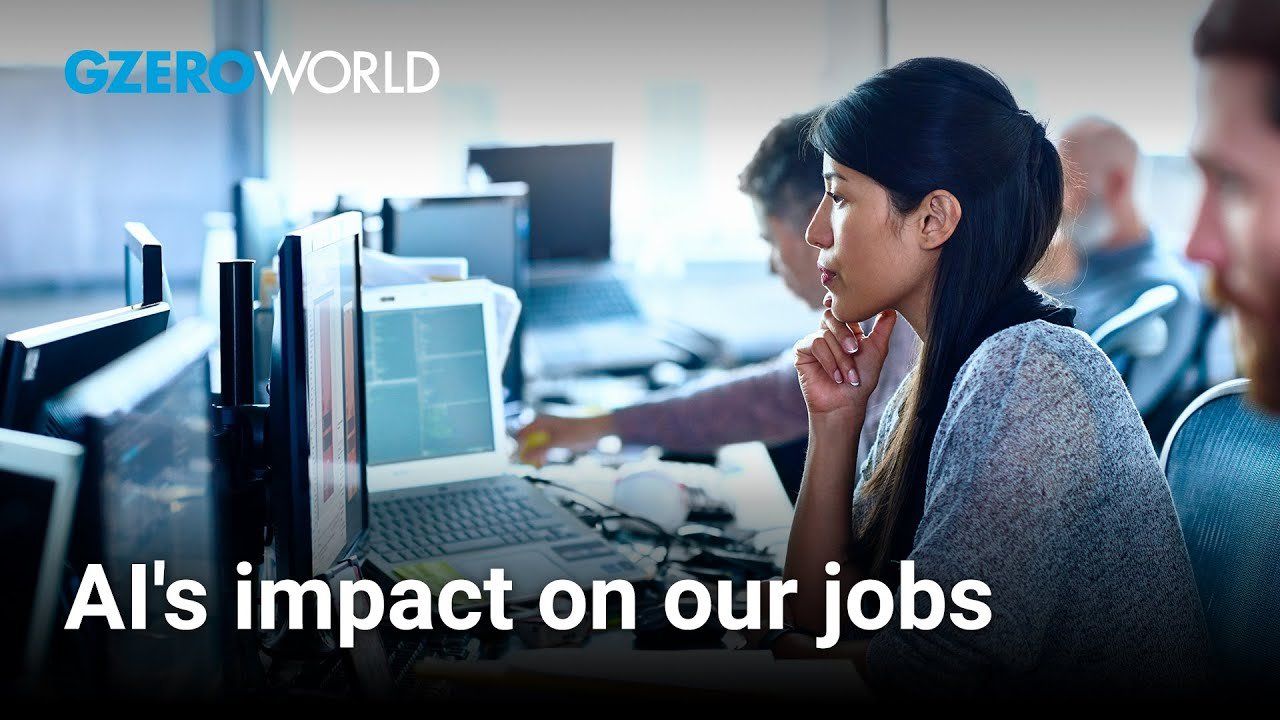GZERO World with Ian Bremmer
How AI is changing the world of work

How AI is changing the world of work | GZERO World with Ian Bremmer

The AI revolution is coming… fast. But what does that mean for your job? GZERO World with Ian Bremmer takes a deep dive into this exciting and anxiety-inducing new era of generative artificial intelligence. Generative AI tools like ChatGPT and Midjourney have the potential to increase productivity and prosperity massively, but there are also fears of job replacement and unequal access to technology.
Ian Bremmer sat down with tech expert Azeem Azhar and organizational psychologist Adam Grant on the sidelines of the World Economic Forum in Davos, Switzerland to hear how CEOs are already incorporating AI into their businesses, what the future of work might look like as AI tools become more advanced, and what the experts are still getting wrong about the most powerful technology to hit the workforce since the personal computer.
“One of the dangers of last year was that people started to lose their faith in technology and technology is what provides prosperity,” Azhar says, “We need to have more grownup conversations, more civil conversations, more moderate conversations about what that reality is.
Ian Bremmer sits down with former US Ambassador to NATO Ivo Daalder to unpack a historic shift in the transatlantic alliance: Europe is preparing to defend itself without its American safety net.
Think you know what's going on around the world? Here's your chance to prove it.
Argentina, Armenia, Belarus, Egypt, Indonesia, Jordan, Pakistan, Paraguay, Vietnam – to name only a few.
A poster featuring Andrew Mountbatten-Windsor, formerly known as Prince Andrew, is installed on a sign leading to the parking area of the Sandringham Estate in Wolferton, as pressure builds on him to give evidence after the U.S. Justice Department released more records tied to the late financier and convicted sex offender Jeffrey Epstein, in Norfolk, Britain, February 5, 2026.
British police arrested former Prince Andrew Mountbatten-Windsor today over allegations that in 2010, when he was a UK trade envoy, he shared confidential government documents with convicted sex offender Jeffrey Epstein.